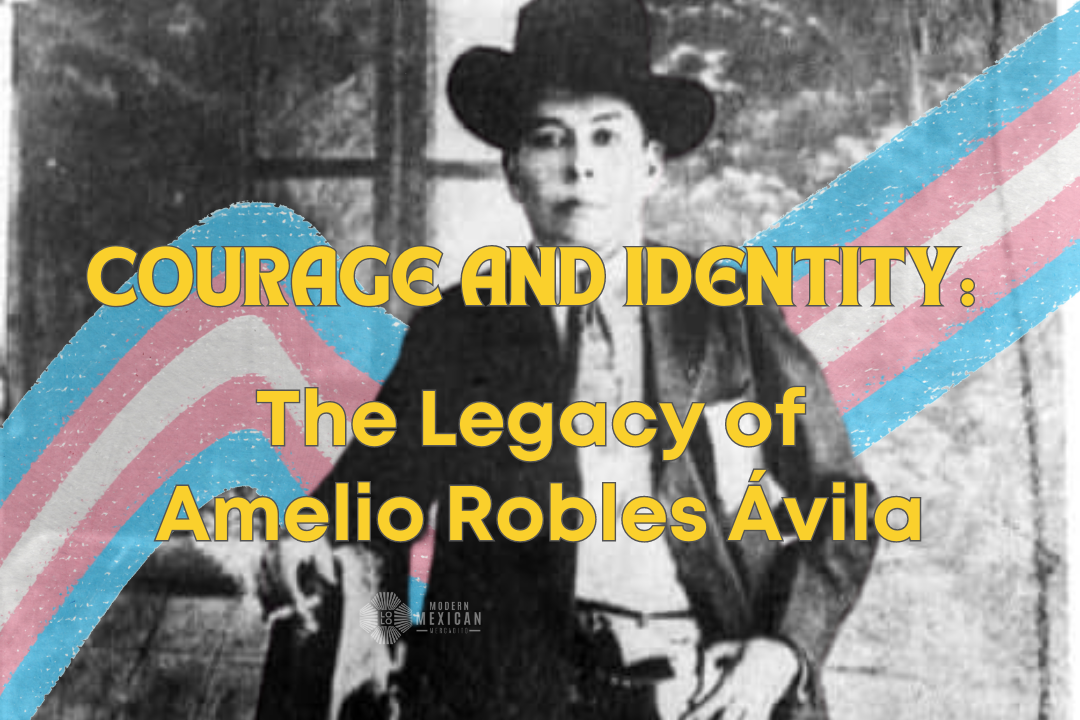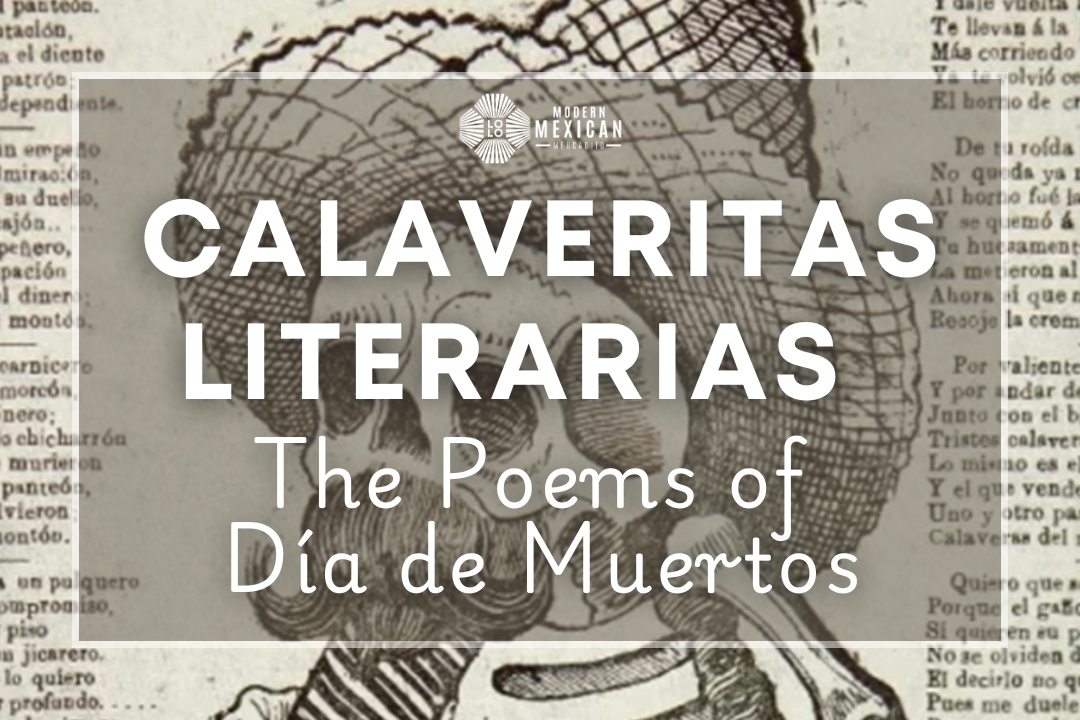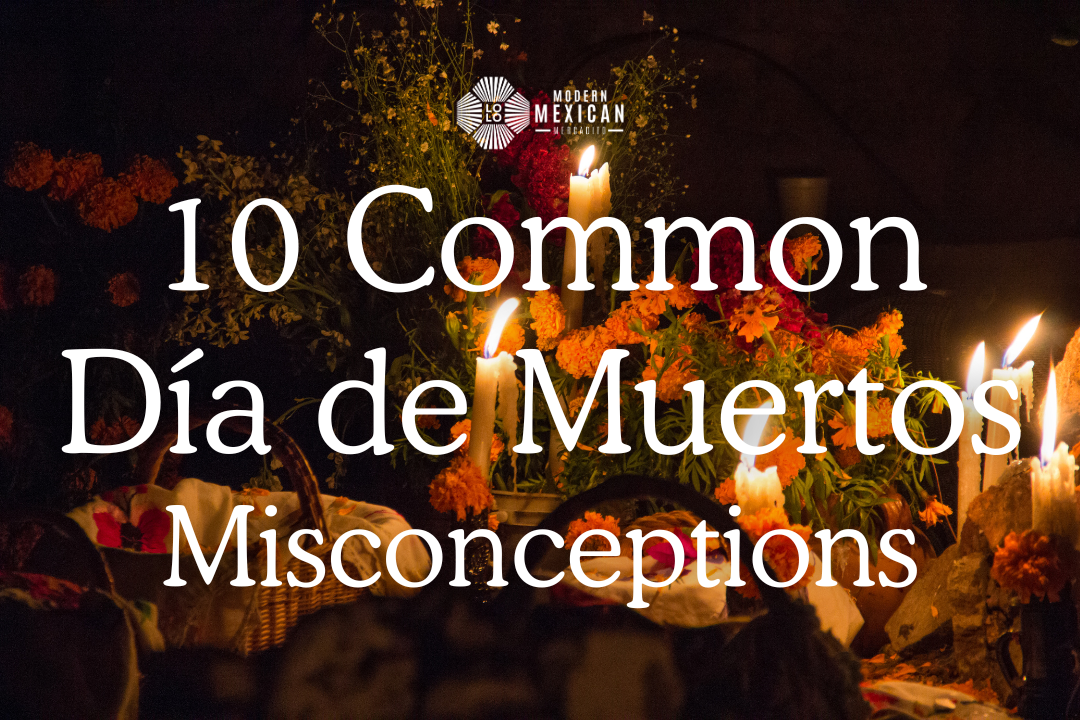The image we see of Amelio Robles Ávila does not differ from that of other men of the time. The colonel wears a dark suit composed of a jacket, pants, tie, and, prominently displayed as if it were an essential part of his appearance, a pistol strapped to his belt. On his head, he wears a hat that further refines his elegant look, and his face shows a stern expression accompanied by an apparent unshakeable seriousness.

However, a deeper look into this man of war's life reveals a story not visible at first glance: Amelio was a trans man who participated in the Revolution. Despite some attempts to overlook his story, Amelio Robles Ávila was named a colonel and achieved institutional recognition of his gender identity.
Amelio Robles Ávila was born on November 3, 1889, in the state of Guerrero, in a small town called Xochipala. Assigned female at birth, his parents named him Amelia Malaquías Robles Ávila. His childhood was spent between his home in Xochipala and the family ranch on the outskirts of the town. Coming from a well-off family, he had the opportunity to attend primary school and join a Catholic congregation called "Daughters of Mary," which focused on the spiritual development of young girls and taught them domestic skills. However, this did not stop Amelia from learning to ride horses and handle weapons—all necessary skills to rise in the revolutionary army.
By 1912, at the age of 23, he decided to join the revolutionary struggle through the Zapatista ranks. His participation included messaging tasks, smuggling weapons and supplies, armed combat, and special missions.
Later, Amelio took up arms and joined Emiliano Zapata's army, now identifying as a man. He expressed his masculinity through his poses, gestures, and clothing: pants, shirt, and hat; thus, he appeared as just another member of the army. However, at this time he was still formally recognized as Amelia Robles, period in which he achieved the rank of colonel.
As historian, researcher, and feminist scholar Gabriela Cano explains, Amelio's determination to present himself to the world, and in the revolutionary context, as a man was not the same as the need some women who participated in the struggle had to go unnoticed to avoid the risk of being raped or punished (such as in the case of Valentina). Instead, it stemmed from his innate desire for male identification.
“Amelio Robles transitioned from an imposed female identity to a desired masculinity: he felt and behaved like a man, and his appearance was masculine,” Cano notes.
In his personal life, Amelio conducted himself as a man and emulated the masculine behaviors prevalent in rural twentieth-century society. He had open relationships with women and formed a partnership with Ángela Torres, with whom he adopted a daughter named Regula Robles Torres.
In 1918, after Venustiano Carranza's victory, Amelio became a soldier in the Mexican Army. His close friendship with General Adrián Castrejón, who was his superior in the Army, and other war veterans involved in politics, allowed his male identity to be officially recognized within the military ranks and among his peers.
Amelio was a man, and anyone who dared not respect his identity or referred to him with the incorrect gender risked facing his pistol. The title of coronel (male colonel) was given to him by his fellow soldiers in the Zapatista army, which was not recognized by the Secretaría de la Defensa Nacional (the army) as an official military body. Therefore, this agency did not officially grant him the title nor awarded him a military pension.
However, thanks to an apocryphal birth certificate in his military records that identified him as Amelio Malaquías Robles Ávila, the Secretaría de la Defensa Nacional validated Amelio's gender identity. In 1974, he was honored as a Veteran of the Mexican Revolution, and not as a veterana, a title given to some women who participated in the struggle.

Amelio passed away in 1984 with all honors and recognition he so bravely fought for. But, despite this tale of success and recognition for one's identity, Amelio Robles's case does not represent a general acceptance of sexual and gender minorities during the revolutionary era in Mexico (nor more recent ones). On the contrary, it is important to note that Amelio faced thousands of adversities and social sanctions after his gender transition, not to mention the lack of recognition from others especially caused to his transgression of normative gender identities.
For example, ignoring his efforts to be recognized as a man, five years after his death, the Secretaría de la Mujer de Guerrero, the Dirección de Culturas Populares of CONACULTA, and the Instituto Nacional de Antropología e Historia opened a museum named Amelia Robles. Additionally, a primary school in his hometown bears the name Coronela Amelia Robles in his honor.
However, he shall remain as the first recorded trans person in Mexican history who was recognized by government institutions. Amelio Robles's participation in the Revolution as a transgender man, whose identity was recognized and who received the rank of colonel, marks a milestone. Contrary to common belief, this indicates that gender-diverse people have always been part of our reality and have participated in the various historical events of our country.
At Lolo, we deeply respect all forms of gender expression and celebrate the advancements made by pioneering figures like Amelio Robles. Highlighting profiles such as his is our way of honoring their strength and resilience. For us, their bravery is what is truly revolutionary. By sharing Amelio's story, we aim to recognize and honor the contributions of gender-diverse individuals to our rich history and culture.
--
So, what do you think? Had you ever heard about this other brave revolutionary before? What other historical characters would you like to learn about? Let us know in the comments below! Also, if you liked this article, remember that we share many more for those subscribed to our newsletter, so be sure to do so here!
Also, we invite you to support our efforts to promote our cultura by sharing and exploring our mercadito, where you can shop authentic artisanal crafts carefully curated to represent true Mexican talent.








